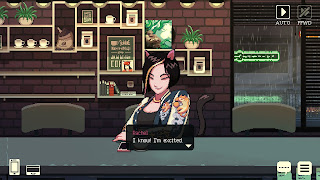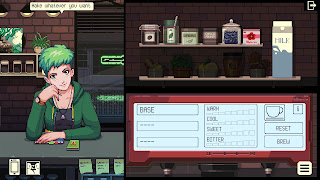
It's going to be my lifelong curse that whenever I talk to people about Indiana Jones I have to say "but I actually like Kingdom of the Crystal Skull. It's not a good movie, but..." And it's hard, perhaps even impossible, not to talk about Indiana Jones and the Dial of Destiny without talking about Indiana Jones and the Kingdom of the Crystal Skull, especially because, to my surprise, it's perhaps more of a sequel to Kingdom of the Crystal Skull than it is to any of the other films in the series. But Dial of Destiny, as the first (perhaps only) Indiana Jones film to be made after Disney's acquisition of Lucasfilm, feels very much like "the fourth sequel" much as Crystal Skull was "the fourth prequel", i.e. Lucasfilm's return to their secondary property after making a bunch of controversial Star Wars films, with all the associated expectations. And the utter loathing people apparently feel towards the, in my opinion, at times meek but never especially objectionable Kingdom of the Crystal Skull was similarly reflected in the leadup towards Dial of Destiny and all the baggage that Lucasfilm has newly acquired with its 2015-2019 Star Wars project. There's even a similar time gap between the release of Revenge of the Sith (2005) and Kingdom of the Crystal Skull (2008) as there is between those of Rise of Skywalker (2019) and Dial of Destiny (2023), pandemic-related delays notwithstanding. I'm not a fan of the Star Wars prequels, nor of the sequels, despite, controversially, having a soft spot for about half of The Last Jedi. Yet in 2008 I was excited for Kingdom of the Crystal Skull and I enjoyed it, and I still do. On the other hand, I was pretty nonplussed about Dial of Destiny. Despite the fact that I think he lost it a long time ago, not having Spielberg directing was one cause for concern, and I have to admit that the casting of Phoebe Waller-Bridge, who I see as a bit flavour-of-the-month the same way Shia LeBoeuf was in 2008, made me apprehensive. It was hard to get excited when I felt like I was just getting Indiana Jones fan fiction.
This is normally the point at which, unexpectedly, I might announce that, having gone to see Indiana Jones and the Dial of Destiny with m'colleague, I loved it. But I didn't. I thought Dial of Destiny was too long and often boring, with sloppy editing, low-energy direction in a number of moments, and a reluctance to get into its character work until the second half suggestive of Disney lacking confidence in the project and having either done reshoots or filmed additional material to increase the running time.
Indiana Jones and the Dial of Destiny isn't bad, per se. But it's not good. There are the ideas and the potential for a good film here, but it's all too slow and lacking in energy to be anything more than mediocre. Kingdom of the Crystal Skull, whatever its faults, in my opinion doesn't drag. You might find it stupid and annoying, but I never find myself thinking "how long is this going to take?" There are multiple parts in Dial of Destiny when I found myself thinking "I'm bored", "this is taking too long" and "when's Marion going to show up?" (the first two being much like I felt the first time I saw The Last Jedi, as it happens). If thirty minutes were edited out of this film and a number of shots tightened up to improve their pacing it would make a big difference, but I suspect that the problem is at a production level. At its heart the film should be driven by the relationship between Indy and Helena, but probably because of studio executive insistence on this, that and the other being inserted into the story, it struggles to do this clearly until probably an hour into the film. That doesn't mean they don't have early scenes together, because they do, but in those scenes she's presenting a false face to Indy to try to trick him into giving her what she wants, and thus the real relationship isn't established until significantly later.
This is the first point at which I've mentioned Indy himself, which is possibly because on this point I really don't have anything to complain about. Harrison Ford is (unsurprisingly) the best part of the film. He's obviously always enjoyed playing Indiana Jones - I suspect he brings a good deal of himself to the part, and feels comfortable in the role - and his age is no impediment to the strength of his performance; the screen lights up whenever he appears, which fortunately is most of the time despite what people feared about Helena stealing the show (which she doesn't). Kingdom of the Crystal Skull gave Indy a happy ending, perhaps a schmaltzy one, depending on your perspective. Indy found a son he never knew he had, reunited with Marion, and got married. Now it's 12 years later, Mutt's dead, he and Marion have separated again, and despite clearly not having lost his passion for archaeology Indy's been clearly nudged into retirement. Gone is the cozy post-middle-aged Indy of Kingdom of the Crystal Skull, who lived in the same comfy house upstate as he did in Last Crusade and still worked on an old fashioned sandstone campus. Now he lives in a small apartment, puts whisky in his morning coffee, works at a dreary postmodern 60s Manhattan college and grouses at kids listening to the Beatles early in the morning. How did Indy end up here? It's explicable, of course, but feels very much like Dial of Destiny saying "this is what old man Indy should really have been like": not the leafy tenured existence of Crystal Skull but a man out of time clinging to the past. Crystal Skull certainly made some attempts to address this, particlarly with Indy juxtaposed to a mushroom cloud and being accused by paranoid FBI agents of being a Soviet turncoat, but this is more personal.
The problem with all this is that it all just takes far too long for this stuff to be addressed properly. It isn't until the sequence on the boat before the dive, probably well over an hour into the film, that Indy talks to Helena about Mutt and Marion, Marion herself doesn't show up until the very end, and a subplot about Indy's friendship with Helena's father gets somewhat dropped after a flashback about halfway through the film. Sallah comes back but this mostly feels like a nostalgic nod because he didn't get to appear in Crystal Skull. It all feels messy and competitive with different screenwriters bringing different ideas, or perhaps Disney executives mandating certain things be added. It feels doubly strange because the Mutt and Marion stuff wouldn't exist without Kingdom of the Crystal Skull and yet this almost feels, as I said above, like it's trying to respond to or even provide an alternative to Crystal Skull, to say "this is old man Indy done right". This film wouldn't exist without Kingdom of the Crystal Skull and yet it almost feels, perhaps fittingly given the plot, like it's intended to replace it.
The plot, like everything else, is a decent idea not fully realised by the screenplay, editing, action choreography, or some combination of these things. German physicist Jurgen Voller, played well but with wearying typecasting by the ever-reliable Mads Mikkelsen, wants to find the lost "Archimedes Dial" to identify a time fissure that will allow him to travel from 1969 to 1939 in order to kill Hitler such that a more competent leader might bring Germany to victory in the Second World War. It was very predictable that in an effort to appeal to the nostalgic that Indiana Jones would fight Nazis again, and by having a Werner von Braun type in that role the Moon Landing backdrop makes sense. My one issue with this is that all of the Moon Landing, Operation Paperclip and general Space Race, Cold War and Vietnam War stuff feels so perfunctory that it's almost not worth it being included, almost like the filmmakers wanted to do something with it but were scared of evoking the very overt 1950s dressing of Kingdom of the Crystal Skull; as such, once the film extricates itself from Manhattan, it doesn't particularly feel like it's set in 1969 at all, instead being just another Indiana Jones adventure in which he fights Nazis for a good chunk of it, with Indy just happening to be old. That is, until it isn't, and it again becomes about Indy feeling old and like he screwed up his life, and Helena having to prove to him that he shouldn't just let himself die in 212 BC.
I will admit that the bizarre ending, in which the overconfident Voller brings himself, Indy, Helena and his men not to the eve of the Second World War but the middle of the Second Punic War, and in which Indy meets Archimedes himself, is refreshing for the sheer novelty value of getting to see a period of history very rarely realised in modern blockbuster cinema, even if there's a lot of uninteresting CGI. Voller's plan going disastrously awry and his realisation that he's made a terrible mistake are true to the series and satisfying to watch, and Mikkelsen plays the whole thing very well. I also like that (contrary to how a lot of people seem to be interpreting it online) the Archimedes Dial isn't itself a time machine and doesn't open up time portals or something, it just detects them, with an appealing element of predestination. I similarly appreciated that it wasn't another Biblical artefact, with this being playfully nodded to in the opening when both Indy and the Nazis are initially more concerned with the Spear of Longinus, which turns out to be fake.
But it all just takes so long, becomes so repetitive, especially with Indy and Helena twice having to steal a comically small vehicle to pursue or outrun Voller, and at times feels like it is taking place in indistinct CGI world, that I found myself never being effortlessly entertained. The opening de-aged sequence, which is about twenty minutes too long, seems to very much take place in the same video-game state as the much-disliked Jungle Cutter sequence from Kingdom of the Crystal Skull. Waller-Bridge is perfectly fine as Helena but it just takes too long for us to really get to know her and for her relationship with Indy to properly develop, and that's what it all comes back to. For a film that's all about moving forward, not getting lost in the past, not giving up and letting obsession or regret consume your life, it takes a hell of a long time to get there. And that's frustrating because, a bit like (some of) the Star Wars sequels, it feels like it could have so easily been better but that Disney, somewhat paradoxically, didn't have the confidence to make a good film and opted to make a mediocre one instead.
I'm prepared to change my mind upon rewatch, and rewatch I will, because this is, after all, an Indiana Jones film starring Harrison Ford, even if it is glorified fan fiction. But I'm almost inclined to say that "mediocre" is in some respects too high in terms of praise and that the film's editing and pacing issues are so egregious as to quite possibly ruin what could have otherwise been a perfectly good sequel. I was fine with Kingdom of the Crystal Skull being the last one. If you weren't, maybe this will be a more satisfying conclusion. If only it could have concluded about half an hour earlier.




